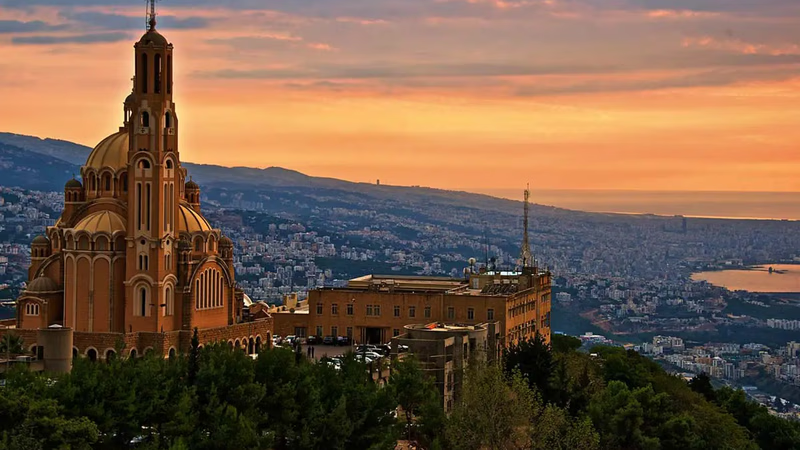
Lebanon"s mountainous terrain shapes trade dynamics and community identities. "
Lebanon is characterized by its mountainous terrain, with the Mount Lebanon range running parallel to the Mediterranean coast. This geography has historically led to the division of Lebanon into distinct regions and communities. The mountains have acted as natural barriers, isolating different communities and contributing to the formation of separate political entities. Lebanon's political structure is based on a system known as confessionalism, which allocates political power among various religious communities proportionally. This system emerged as a way to accommodate the diverse religious and ethnic groups within the country. The mountainous geography has facilitated the preservation of distinct religious and ethnic communities, which are given political representation in the government.
The geography of Lebanon has also contributed to sectarian divisions within the country. The mountains have provided physical spaces where different religious groups could establish their own communities and maintain their distinct identities. This has resulted in a political structure in which power-sharing and representation are based on religious affiliation. Lebanon's geography has made it vulnerable to external influences and interventions. Its location in the Middle East, bordered by Syria and Israel, has subjected it to regional power dynamics and conflicts. Throughout history, Lebanon has been influenced by regional powers seeking to exert control or leverage its strategic position. These external influences have shaped the political structure and dynamics within Lebanon.
Since the early 1970s, with the efforts of Imam Musa Sadr and the formation of the Lebanese Shiite Supreme Assembly and the Amal Movement, the cohesion and influence of the Lebanese Shiites have multiplied, and today Hezbollah is one of the most influential political parties and organizations in Lebanon. It is considered military in Lebanon. It is a neighbor of occupied Palestine and has been repeatedly attacked by the Zionists and has suffered great human and economic damage. Israel occupied parts of the country, including Beirut, in 1982. In recent years, many Lebanese have migrated out of Lebanon due to feelings of insecurity on the part of the Zionist regime.
According to the "sect agreement", the three forces in the country are divided between three main sects (Maronite Christian, Sunni and Shiite). According to the agreement, the presidency belongs to the Maronites, the prime minister to the Sunnis, and the speaker of parliament to the Shiites. Given that orthodox Christians are numerically the second largest within the Lebanese Christian sect, the Deputy Prime Minister and Deputy Speaker of Parliament are selected from this tribe.
This sectarian quota has been considered in more detail in the Lebanese parliament, and the share of other Lebanese tribes, especially minorities, has been taken into account in the parliament. The Lebanese parliament has 128 members, divided equally between Christians and Muslims. This relative division has also been implemented within each of the two Christian and Muslim tribes, and a quota has been set for all 18 Lebanese tribes in proportion to the population of that tribe. According to the constitution, the deputies are elected by direct popular vote for a four-year term. The president, who is the president, is elected by a two-thirds majority for a six-year term. The President, after consulting with the Members of Parliament and based on the introduction of a majority of one-half plus one of the Members of Parliament, shall nominate the Prime Minister and instruct him to form a Cabinet.
Lebanon's geography, including its coastline and favorable climate, has played a crucial role in its economic activities. The country has a long history of trade and commerce, with its ports serving as important hubs. Economic interests have often intersected with political power, and different regions and communities have vied for control over economic resources and opportunities. Lebanon is an Asian country on the shores of the Mediterranean Sea with a history of several thousand years of civilization. The region was one part of the Levant and became an independent state after the collapse of the Ottoman Empire. The majority of the population is Muslim. Several tribes are living in Lebanon. About 30% of the country's population is Shiite.
-
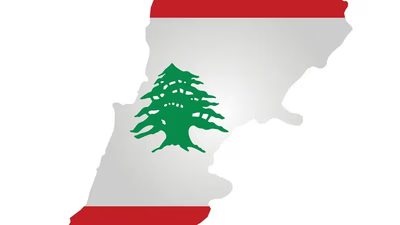
Lebanon"s agricultural sector is diverse, producing olives, citrus fruits, apples, grapes, vegetables, dairy products, and poultry. The country is particularly noted for its high-quality olive oil and wine exports. A robust food processing industry enhances the value of these agricultural products through the production of canned goods and traditional items like hummus and baklava. Additionally, Lebanon"s textile and garment industry plays a significant role in its economy, with Beirut recognized as a fashion hub. The jewelry sector thrives on skilled artisans creating intricate designs in gold and silver. Major industrial outputs include textiles, chemicals, wood products, and oil refining. Lebanon also exports precious stones and fertilizers while importing mineral fuels and machinery. In 2018, Lebanon"s trade balance showed a deficit with exports at $3.
8 billion against imports of $20. 3 billion. The country maintains trade relations with various nations including Saudi Arabia and China for imports and exports respectively. The pharmaceutical industry is well-established in Lebanon, producing generic drugs for both local consumption and export. The services sector significantly contributes to the economy through banking, tourism, telecommunications, and IT services. "
-
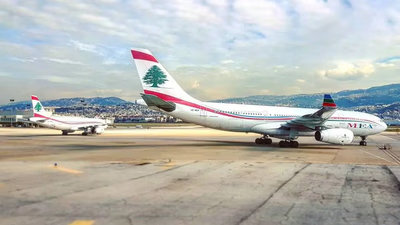
Lebanon"s transport infrastructure features a comprehensive road network linking major cities, including highways like Beirut-Damascus and Beirut-Tripoli. While the road system facilitates connectivity, it faces challenges such as traffic congestion, particularly in urban areas. The country also utilizes its Mediterranean coastline for ferry services between coastal cities, enhancing intercity travel options. Car rentals are widely available, allowing flexibility for both residents and visitors. Public transportation includes buses and minibusses, which offer affordable commuting but can be overcrowded during peak hours. Taxis and ride-hailing services like Uber provide additional transport choices, although traffic congestion remains a significant issue. Travelers should be cautious of road conditions and local driving practices, especially on narrow mountain roads. Beirut-Rafic Hariri International Airport serves as the primary air travel hub, connecting Lebanon to global destinations. "
-
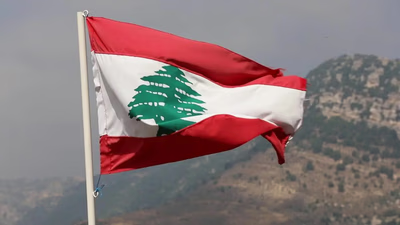
The Lebanese economy is diverse, with significant contributions from services, industry, and agriculture. The services sector, particularly banking and finance, has historically been the largest contributor to GDP. Lebanon"s banking system has attracted both domestic and international deposits due to its stability. However, recent challenges such as a banking crisis and capital controls have hindered economic activity. The tourism sector has also faced setbacks due to political instability and security concerns, despite Lebanon"s appeal as a tourist destination. Agriculture remains the least significant sector, contributing only 10% of GDP and employing 12% of the workforce. Despite its agricultural potential, Lebanon relies heavily on imports from Arab countries. The country is known for its fashion, cosmetics, food products, and pharmaceuticals, exporting dairy and clothing primarily to Europe.
Remittances from expatriates have been crucial for domestic consumption but have declined due to economic challenges. The civil war (1975-90) severely damaged infrastructure but post-war recovery efforts saw growth in various sectors until the 2006 conflict disrupted progress again. Since 2019, Lebanon has faced a severe economic crisis marked by currency depreciation, high inflation, unemployment, and shortages of essential goods. The government is seeking international assistance to implement reforms aimed at restoring economic stability.
-
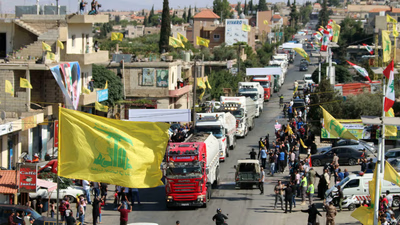
Lebanon"s transportation infrastructure is characterized by an extensive road network connecting major cities, with the Beirut-Damascus Highway being the most significant. However, issues such as poor road conditions and traffic congestion persist. Public transportation relies heavily on buses and minibuses, but service quality varies, leading to overcrowding during peak hours. The Port of Beirut is the largest maritime gateway for trade, alongside other ports like Tripoli and Saida. Currently, Lebanon lacks an operational railway system, although plans for revival exist to alleviate traffic issues. Trade routes between Iran and Lebanon are primarily maritime due to unreliable land routes through Iraq and Jordan. The Lebanese customs regime has been simplified in recent years, with low tariffs on imports but a complex licensing system for exports and imports. Certain goods are prohibited from entering Lebanon, including drugs and older vehicles.
Agricultural imports require specific licenses based on seasonal needs or regulations from various ministries. Taxis are widely available in urban areas for shared or private rides, while Beirut-Rafic Hariri International Airport serves as the main air travel hub despite reduced flight options due to economic challenges. "
-

Lebanon"s geography, characterized by its mountainous terrain and Mediterranean coastline, has significantly influenced its political structure and social dynamics. The natural barriers created by the mountains have led to the isolation of various communities, fostering distinct religious and ethnic identities. This has resulted in a confessional political system that allocates power among different religious groups, including Maronite Christians, Sunnis, and Shiites. The sectarian quota system ensures representation in government based on religious affiliation, with a parliament divided equally between Christians and Muslims. Lebanon"s strategic location in the Middle East has made it susceptible to external influences and conflicts, particularly from neighboring Syria and Israel. The rise of influential political entities like Hezbollah reflects the complex interplay between geography and politics. Economic activities are deeply intertwined with this political landscape; Lebanon"s ports have historically served as vital trade hubs. However, ongoing regional tensions have led to significant emigration as many Lebanese seek security abroad. Overall, Lebanon"s unique geographical features continue to shape its trade dynamics and political landscape.





